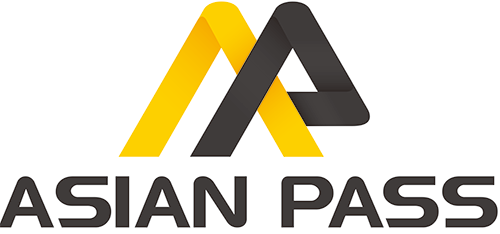Is the tax code of a business changed when it changes its type? When is a business granted a dependent tax code? Who are the 10-digit and 13-digit tax codes granted to? How is the use of tax codes regulated? Through today’s article, let’s find out about this issue with Pham Consult!

Is the tax code of a business changed when it changes its type? When is a business granted a dependent tax code?
Pursuant to Point d, Clause 3, Article 30 of the Law on Tax Administration 2019, the following provisions are made:
Subjects of tax registration and tax code issuance
…
3. Tax code issuance is stipulated as follows:
a) Enterprises, economic organizations, and other organizations are granted a single tax code for use throughout their operations from the time of tax registration until the tax code expires. Taxpayers with branches, representative offices, and dependent units directly performing tax obligations shall be granted dependent tax codes. In cases where enterprises, organizations, branches, representative offices, and dependent units carry out tax registration under the one-stop mechanism together with business registration, cooperative registration, and business registration, the code recorded on the business registration certificate, cooperative registration certificate, and business registration certificate is also the tax code;
b) An individual is granted a single tax code to use throughout his/her lifetime. Dependents of an individual are granted a tax code to reduce family circumstances for the individual income taxpayer. The tax code granted to a dependent is also the tax code of the individual when the dependent incurs obligations to the state budget;
c) Enterprises, organizations and individuals responsible for deducting and paying taxes on behalf of the taxpayer are granted a tax code to pay taxes on behalf of the taxpayer to declare and pay taxes on behalf of the taxpayer;
d) The tax code granted cannot be reused to grant to another taxpayer;
dd) The tax code of an enterprise, economic organization or other organization after conversion of type, sale, donation, or inheritance shall remain the same;
e) The tax code granted to a household, business household or individual doing business is the tax code granted to the individual representing the household, business household or individual doing business.
4. Tax registration includes:
a) First-time tax registration;
b) Notification of changes in tax registration information;
c) Notification of temporary suspension of operations and business;
d) Termination of tax code validity;
dd) Restoration of tax code.
Accordingly, the tax code of an enterprise shall not be changed when converting its type.
An enterprise is granted a dependent tax code when it has a branch, representative office, or dependent unit directly performing tax obligations and is granted a dependent tax code.
To whom are 10-digit and 13-digit tax codes issued?
According to Article 30 of the 2019 Law on Tax Administration, there are regulations on subjects of tax registration and tax code issuance as follows:
Subjects of tax registration and tax code issuance
1. Taxpayers must register for tax and be granted a tax code by the tax authority before starting production and business activities or incurring obligations to the state budget. Subjects of tax registration include:
a) Enterprises, organizations and individuals who carry out tax registration under the one-stop mechanism together with enterprise registration, cooperative registration and business registration in accordance with the provisions of the Enterprise Law and other relevant legal provisions;
b) Organizations and individuals not falling under the cases specified in Point a of this Clause shall carry out tax registration directly with the tax authority in accordance with the provisions of the Minister of Finance.
2. The structure of the tax code is prescribed as follows:
a) The 10-digit tax code is used for enterprises, organizations with legal status; representatives of households, business households and other individuals;
b) The 13-digit tax code and other characters are used for dependent units and other subjects;
c) The Minister of Finance shall specify this clause in detail.
…
Thus, the subjects granted 10-digit and 13-digit tax codes include:
– 10-digit tax codes granted to:
+ Enterprises, organizations with legal status;
+ Representatives of households, business households and other individuals;
– 13-digit tax codes and characters granted to dependent units (branches, representative offices, etc.) and other subjects.
How is the use of tax codes regulated?
According to Article 35 of the 2019 Law on Tax Administration, the use of tax codes is regulated by law, specifically:
(1) Taxpayers must record the granted tax codes on invoices, vouchers, and documents when conducting business transactions; opening deposit accounts at commercial banks and other credit institutions; declare taxes, pay taxes, exempt taxes, reduce taxes, refund taxes, not collect taxes, register customs declarations and carry out other tax transactions for all obligations to the state budget, including cases where taxpayers operate production and business activities in many different locations.
(2) Taxpayers must provide tax codes to relevant agencies and organizations or record tax codes in their records when performing administrative procedures under the one-stop mechanism with tax authorities.
(3) Tax authorities, the State Treasury, commercial banks that coordinate with the State budget collection, and organizations authorized by tax authorities to collect taxes use taxpayers’ tax codes in tax management and tax collection to the State budget.
(4) Commercial banks and other credit institutions must record tax codes in account opening records and transaction documents through taxpayers’ accounts.
(5) Other organizations and individuals participating in tax management use taxpayers’ assigned tax codes when providing information related to determining tax obligations.
(6) When the Vietnamese party pays money to an organization or individual with cross-border business activities based on a digital intermediary platform that is not present in Vietnam, the tax code issued to this organization or individual must be used to deduct and pay on behalf of that organization or individual.
(7) When the personal identification number is issued to the entire population, the personal identification number is used instead of the tax code.
Comments




 VI
VI